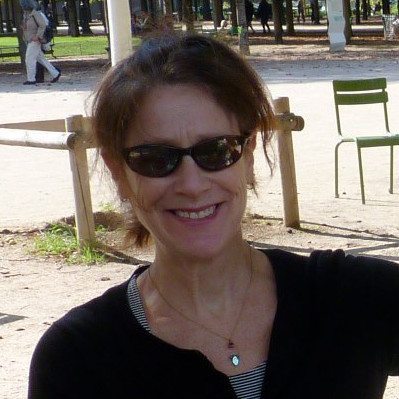Ask anybody in my family and they’ll tell you that I’m kind of a klutz. I possess a bizarre flair for tripping over infinitesimal cracks in the sidewalk. I know that this is at least partly due to the amount of time I spend inside my head, in a parallel universe of parental anxieties and class prep and ideas for new plays.
It may seem like an unlikely choice of exercise, but I love to run. Especially in the woods. And especially in November. Sure, perils abound—those proverbial sticks and stones, not to mention treacherous slick leaves. But there’s something about late autumn trail running that puts my antennae on high alert. With the foliage gone, a whole new landscape is exposed, as fresh and surprising as the first spring crocuses.
It’s Thursday night PMP, and nearly one month after this band of fourteen young participants and two adult leaders have first met. After check-in, there’s laughter. Jokes. Eye-rolling about a really annoying teacher. The beginnings of a collective group history.
And then, like the November landscape, fourteen PMP kids reveal the raw material of their lives.
Friendship.
Betrayal.
Loneliness.
This is tough stuff. But Kate reminds the group that PMP is a great place to bring heartbreak or bumps in the road, to build upon themes in their lives.
A decision is reached by consensus. The first improv will deal with jealousy. What do you do when you find out that your boyfriend or girlfriend is hanging out in a coffee shop with their ex?
But first, a few ground rules: 1) Work through the conflict, and 2) don’t end the scene by storming off.
Someone tosses out a suggestion that raises the emotional stakes. Other characters enter the scene, alter the dynamic. All the while, Kate subtly inserts directives: “She needs your help.” “Don’t forget your audience.” What’s a resolution that’s not too easy or overly dramatic?
A five-minute break, and then the group divides in half. Two more themes to explore, both drawn from the kids’ lives.
Time’s running out. It’s after 8, and the session ends with more questions than answers. To be continued, after Thanksgiving.
* * *
A few nights ago, I saw a production of “Our Town”. Thornton Wilder’s play, written in 1938, is often relegated to Hallmark card status—a sentimental valentine to rural New England. But that was never Wilder’s intent. He wanted to “portray life in all its contradictions.” A bare stage, no props, and endless references to numbers and the passage of time are all reminders of our insignificance- and magnificent importance- in relation to the universe.
At some point in the PMP evening, I heard one of the kids say, somewhat wistfully, “I wanna know what the real world’s like.”
Well, for what it’s worth, I’d say that PMP is the real world. Maybe it’s been distilled and condensed. Reshaped and somewhat fictionalized for the purposes of theater.
But these themes, these emotions, suddenly revealed in this small city, on this dark November night: well, they’re as real as it gets.
And P.S. On these late-autumn trail runs, I rarely stumble…
Meet our PMP Blogger
 Jane Denitz Smith is a proud member of Dramatists Guild, through whose aegis she recently held a staged reading of Death by Chocolate and Barbecue, new full-length plays. Most recently, Spread My Ashes By the Rental was part of the Made in the Berkshires Festival. Last May, Mary Durning’s Soup and Other Cultural Divides was included in Boston Theatre Marathon. Ten-minute plays have workshopped in Jen Whiting’s Ten-Minute-Play Workshop podcasts and, in 2011, scenes from After Prom, a full-length play, were staged as part of the Berkshire Festival of Women Writers. Jane is the author of three Young Adult novels, published with HarperCollins. She teaches and lives with her family in Williamstown, Mass.
Jane Denitz Smith is a proud member of Dramatists Guild, through whose aegis she recently held a staged reading of Death by Chocolate and Barbecue, new full-length plays. Most recently, Spread My Ashes By the Rental was part of the Made in the Berkshires Festival. Last May, Mary Durning’s Soup and Other Cultural Divides was included in Boston Theatre Marathon. Ten-minute plays have workshopped in Jen Whiting’s Ten-Minute-Play Workshop podcasts and, in 2011, scenes from After Prom, a full-length play, were staged as part of the Berkshire Festival of Women Writers. Jane is the author of three Young Adult novels, published with HarperCollins. She teaches and lives with her family in Williamstown, Mass.
